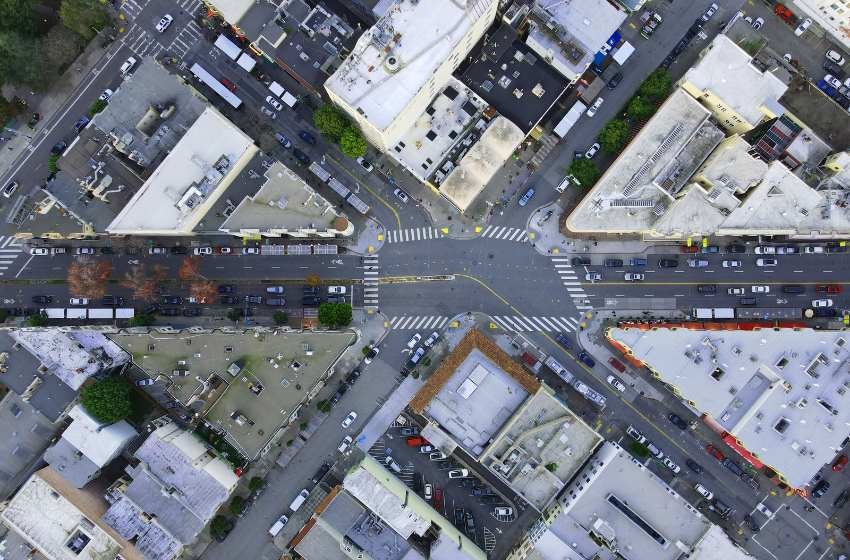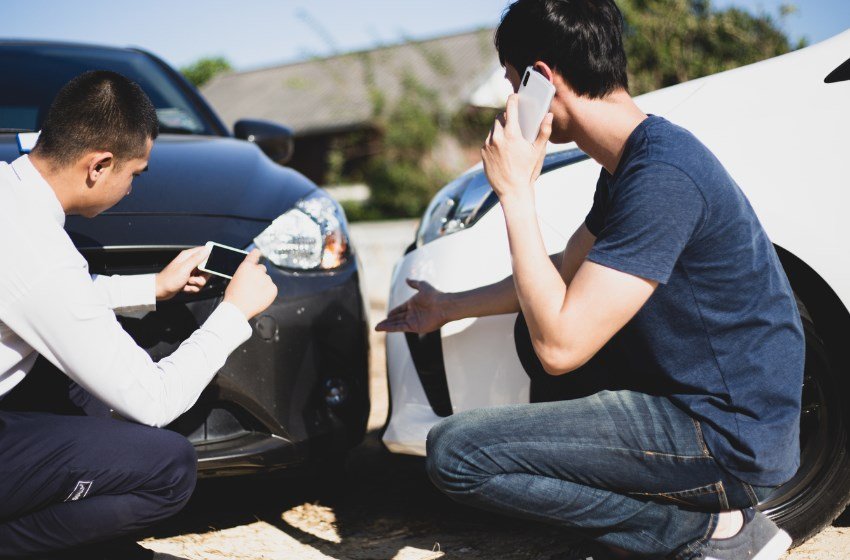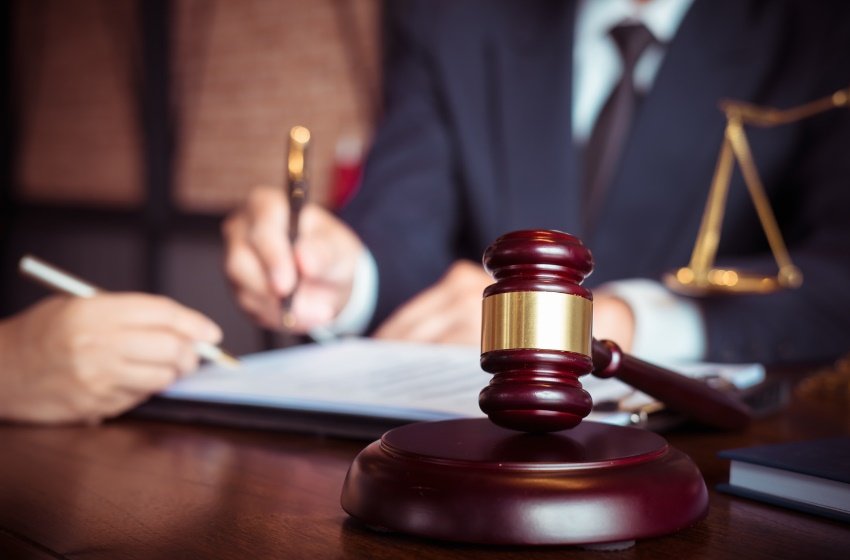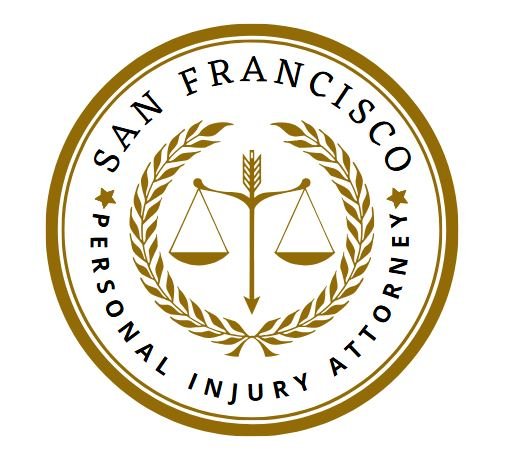Car Accident Lawyer – San Francisco, CA
San Francisco’s Most Dangerous Intersections and What They Mean for Your Claim
San Francisco, with its hilly terrain and dense urban environment, is home to some of the most dangerous intersections in the United States. While the city’s iconic streets and vibrant neighborhoods draw millions of visitors every year, the risk of accidents at certain intersections is high. These areas, known for frequent collisions, can significantly impact personal injury claims. Understanding these dangerous intersections and how they can affect your legal case is essential when navigating the aftermath of an accident.
1. Mission Street and South Van Ness Avenue
One of the busiest intersections in San Francisco, Mission Street and South Van Ness Avenue, has been notorious for its high rate of accidents. The heavy flow of traffic, combined with multiple lanes and the potential for distracted driving, makes it a dangerous spot for pedestrians and drivers alike. If you are involved in an accident here, proving fault could be complex due to the number of vehicles and potential contributing factors like weather or road conditions.
What it means for your claim:
In cases like these, it’s crucial to work with an experienced San Francisco Personal Injury Attorney who can help determine liability and gather the necessary evidence, such as traffic camera footage or witness testimony, to support your case.
2. Golden Gate Avenue and Fillmore Street
Located near the Civic Center, this intersection sees a lot of pedestrian and vehicle traffic. It’s a high-risk zone due to its proximity to major landmarks and public transport hubs. Drivers often speed to make green lights or fail to yield to pedestrians, which can lead to serious accidents.
What it means for your claim:
If you’re involved in a collision at this intersection, you may be dealing with multiple liable parties, such as negligent drivers or even city infrastructure issues. A San Francisco accident attorney can help you navigate these complexities and ensure you receive the compensation you’re entitled to.
3. Geary Boulevard and Masonic Avenue
Geary Boulevard, a major thoroughfare, intersects with Masonic Avenue, which is known for its steep incline and sharp turns. Accidents are common here, especially during rush hours or when weather conditions, like fog or rain, obscure visibility.
What it means for your claim:
If you sustain injuries at this intersection, understanding the contributing factors, such as road design or traffic signal timing, is essential. An experienced personal injury attorney can help determine if any external factors, like poorly designed roads or malfunctioning signals, contributed to the accident.
4. California Street and Van Ness Avenue
Another highly trafficked intersection, California Street and Van Ness Avenue, is prone to collisions due to its complexity. Drivers often make risky lane changes, and the intersection sees both pedestrian and vehicle traffic from various directions.
What it means for your claim:
Given the potential for multiple causes of the accident, including driver negligence or poor signage, a skilled attorney will help ensure that all factors are considered when pursuing compensation. They’ll also assist with dealing with insurance companies, who may attempt to minimize your payout due to shared fault.
5. Market Street and 5th Street
Market Street is one of San Francisco’s busiest streets, and its intersection with 5th Street often sees accidents involving pedestrians, cyclists, and vehicles. The constant movement of people and vehicles increases the risk of collisions.
What it means for your claim:
At this intersection, pedestrian accidents are common, and liability may fall on the driver or the city for not maintaining proper infrastructure. A San Francisco Personal Injury Attorney will investigate every aspect of the accident to ensure all responsible parties are held accountable.
Key Considerations When Dealing with Dangerous Intersections
– Gathering Evidence:
In accidents at these dangerous intersections, gathering evidence is crucial. Eyewitness testimony, traffic cam footage, and accident reconstruction experts can help prove fault and support your claim.
– Understanding Liability:
Some accidents might involve multiple parties, including other drivers, pedestrians, or even local government entities responsible for road maintenance. Your attorney will carefully assess all angles of the incident to identify who is at fault.
– Insurance Negotiation:
Accidents in high-risk areas can lead to higher insurance payouts, but insurance companies might try to reduce the settlement amount. Having an experienced accident attorney by your side ensures that your interests are protected.
Conclusion
San Francisco’s most dangerous intersections present unique challenges for accident victims. If you’ve been involved in an accident in one of these high-risk areas, it’s essential to work with a skilled San Francisco Personal Injury Attorney or accident attorney who understands the intricacies of local traffic patterns and laws. By gathering the right evidence and identifying all parties at fault, you can increase your chances of securing the compensation you deserve.
If you need help navigating the legal aspects of your accident claim, reach out to a San Francisco accident attorney for expert guidance and support.


Got Questions? Call Now To Get Answers
Top Questions to Ask a Car Accident Lawyer Before Hiring Them in San Francisco
When you’ve been involved in a car accident in San Francisco, hiring the right lawyer can make a significant difference in the outcome of your case. The legal process can be complex and challenging, and it’s crucial to ensure that the attorney you choose is experienced, reliable, and well-suited to handle your specific needs. Here are some of the top questions to ask a Car Accident Lawyer before hiring them in San Francisco, and how these questions can guide your decision-making process.
1. What is Your Experience with Car Accident Cases in San Francisco?
It’s important to hire a lawyer who has experience specifically with car accidents. San Francisco’s unique traffic conditions and road designs require an attorney familiar with local laws and regulations.
Why it matters:
A lawyer with experience in San Francisco can navigate the intricacies of local traffic laws, deal with the insurance companies effectively, and understand how specific intersections and roads in the city might contribute to accidents.
2. How Will You Investigate My Case?
Ask how the lawyer plans to investigate the circumstances surrounding your accident. Will they hire accident reconstruction experts or gather evidence from traffic cameras, witnesses, or police reports?
Why it matters:
A thorough investigation is key to building a strong case. Whether it’s gathering photos, speaking with witnesses, or reviewing accident records, the lawyer should have a clear plan on how to gather and present evidence.
3. What Are the Potential Outcomes of My Case?
Understanding the potential outcomes of your case helps set realistic expectations. A reputable Car Accident Lawyer will be honest about the strengths and weaknesses of your case.
Why it matters:
Every accident is unique, and your lawyer should be able to explain the likely scenarios based on the specifics of your accident, including how fault is assigned, potential compensation, and the timeline for resolution.
4. How Do You Charge for Your Services?
It’s crucial to understand the lawyer’s fee structure before committing. Many car accident lawyers work on a contingency fee basis, meaning they only get paid if you win the case.
Why it matters:
Knowing the fee structure upfront helps you avoid any surprises. A contingency fee arrangement means the lawyer has a vested interest in getting you the best possible settlement.
5. What Is Your Track Record with Car Accident Cases?
Ask about the lawyer’s success rate in handling car accident claims. How many cases have they won, and what is the average compensation they’ve secured for their clients?
Why it matters:
A successful track record indicates that the lawyer has experience in securing favorable outcomes for clients, which can increase your confidence in their ability to handle your case.
6. How Will You Communicate with Me Throughout the Process?
Clear communication is vital in any legal case. Ask the lawyer how they plan to keep you informed about the status of your case and how accessible they will be if you have questions.
Why it matters:
A good lawyer should keep you updated regularly and be responsive to your concerns. Knowing how often and through what channels they will communicate helps you set expectations for the attorney-client relationship.
7. What Should I Do Right After a Car Accident?
An experienced car accident lawyer will be able to advise you on the immediate steps you should take following an accident to preserve your case. Whether it’s gathering evidence, speaking with the police, or seeking medical attention, their advice will be crucial.
Why it matters:
Following the right steps immediately after an accident can significantly strengthen your claim. A Car Accident Lawyer will help guide you on what to do next to protect your rights.
8. Do You Handle Work Injury Cases as Well?
If your car accident occurred during work-related activities (for example, driving for work), it may also be considered a work injury. Ask if the lawyer has experience with work injury cases, as these often involve additional legal complexities.
Why it matters:
If your case also involves workers’ compensation claims, you’ll need a lawyer who understands both car accident law and work injury law to ensure that you receive the full compensation you’re entitled to.
9. How Long Will It Take to Resolve My Case?
Every case is different, but it’s important to ask about the estimated timeline for resolving your case. Some car accident claims may be settled quickly, while others could take longer, depending on the complexity of the case.
Why it matters:
Knowing the likely timeline helps you manage your expectations and plan accordingly. A good lawyer should provide a reasonable estimate based on the specifics of your situation.
10. What Is Your Strategy for Dealing with Insurance Companies?
Insurance companies often try to minimize the amount of money they pay out in claims. Ask how the lawyer plans to handle negotiations with the insurance companies involved in your case.
Why it matters:
A skilled Injury Lawyer Near Me will know how to negotiate effectively with insurance companies to ensure that you receive a fair settlement, avoiding tactics that may undermine your claim.
Conclusion
Hiring the right Car Accident Lawyer in San Francisco is an essential step in getting the compensation you deserve after an accident. By asking the right questions, you can make an informed decision and ensure that you choose an attorney who has the right expertise, experience, and approach to handle your case. Additionally, if your case intersects with a work injury lawyer scenario, make sure to choose a lawyer who can handle both aspects for the best possible outcome.
If you’ve been involved in a car accident and need legal representation, contact an experienced Car Accident Lawyer to ensure that your rights are protected and that you receive the compensation you deserve.


Got Questions? Call Now To Get Answers
The Importance of Witness Statements in San Francisco Car Accident Cases
In the aftermath of a car accident in San Francisco, one of the most crucial aspects of building a strong case is gathering reliable evidence. While physical evidence, such as photographs of the scene or vehicle damage, is essential, witness statements often play a critical role in determining liability. Witnesses—whether pedestrians, other drivers, or passengers—can provide valuable information that may be pivotal to your claim. Here’s why witness statements are so important in car accident cases and how they can influence the outcome of your case.
1. Providing an Objective Account of the Accident
Witnesses can offer an independent perspective of what occurred during the accident. Their statements can help fill in the gaps when there are conflicting reports or when the involved parties have different versions of events. For example, if one driver claims they had the green light while the other insists it was red, a neutral witness may confirm the traffic signal or provide insight into the circumstances leading up to the crash.
Why it matters:
Having third-party testimony that supports your version of the events is invaluable. It provides an objective viewpoint, which can counterbalance the biased statements of the involved parties or the insurance companies.
2. Strengthening Your Case for Fault
In San Francisco, proving fault in a car accident case can be complex due to the city’s challenging road conditions, heavy traffic, and unique intersections. Witness statements can help corroborate key details, such as how the accident occurred, who failed to yield, or whether a driver was distracted at the time of the crash.
Why it matters:
If a witness can confirm that the other driver ran a red light, failed to stop at a stop sign, or was texting while driving, their testimony strengthens your case. This can be crucial in securing a favorable verdict or settlement.
3. Enhancing Credibility in Personal Injury Claims
Car accident cases often involve significant personal injury claims. Injuries sustained in car accidents can range from minor to severe, and a witness statement can help validate the severity of the injuries you’ve claimed. For instance, a witness might testify that they saw you struggling to move after the accident or that you appeared disoriented or in pain immediately after the crash.
Why it matters:
When filing a personal injury claim, the more supporting evidence you have to demonstrate the extent of your injuries, the stronger your case becomes. Witness statements can corroborate your medical claims and make your argument more persuasive to insurance companies or in court.
4. Helping in Cases Involving Hit-and-Run Accidents
In cases of hit-and-run accidents, where the responsible driver leaves the scene, witness statements can be instrumental in identifying the at-fault driver. Eyewitnesses can provide descriptions of the vehicle, the driver, or even the direction in which the driver fled. This information can aid law enforcement and increase the chances of locating the responsible party.
Why it matters:
In hit-and-run accidents, the lack of physical evidence can make it difficult to prove fault. Witness statements can bridge this gap by providing crucial details that lead to the identification of the driver, making it easier for your attorney to pursue compensation.
5. Supporting Wrongful Death Claims
In the tragic event that a car accident leads to the death of a loved one, witness statements can provide crucial insights into the moments leading up to the fatal crash. These statements can help establish the cause of the accident and determine whether the driver’s actions were negligent or reckless.
Why it matters:
If you are pursuing a wrongful death claim due to a fatal car accident in San Francisco, witness testimony can be a pivotal factor in proving liability. The accounts provided by witnesses can demonstrate the other driver’s negligence, speeding, or other contributing factors, which are essential for securing a fair compensation for the family and estate of the deceased.
6. How to Gather Witness Statements
If you’re involved in a car accident, it’s important to gather witness statements as soon as possible. Witnesses may forget crucial details over time, so it’s best to get their contact information and statements while the incident is still fresh in their memory. If you’re unable to gather statements at the scene, your lawyer can help track down witnesses and interview them.
Why it matters:
Gathering witness statements quickly ensures that the testimony is accurate and relevant. Your wrongful death attorney or personal injury lawyer will be able to use this testimony to strengthen your claim and help establish clear fault.
Conclusion
Witness statements can be one of the most powerful forms of evidence in a San Francisco car accident case. Whether you’re pursuing a personal injury claim or a wrongful death claim, these statements provide critical insight into the events surrounding the accident and can help establish fault, validate your injuries, and strengthen your case. It’s important to work with an experienced car accident lawyer who knows how to gather and utilize witness testimony effectively.
If you’ve been involved in a car accident and need assistance in collecting witness statements or navigating your claim, consider reaching out to a wrongful death attorney or personal injury lawyer. They can guide you through the process, ensuring you have the best chance of receiving the compensation you deserve.
Got Questions? Call Now To Get Answers
Settling vs. Going to Trial: What’s Best for Car Accident Victims in San Francisco?
After a car accident in San Francisco, victims often face the difficult decision of whether to settle their case or take it to trial. Both options have their benefits and drawbacks, and the right choice depends on the specifics of your case, the severity of your injuries, the evidence at hand, and your personal preferences. Here’s an in-depth look at the factors that will guide you through this decision-making process, and how each option can impact your chances of receiving fair compensation.
Settling a Car Accident Claim: Pros and Cons
Pros of Settling:
1. Faster Resolution:
One of the primary benefits of settling a car accident case is that it can result in a quicker resolution. Trials can drag on for months or even years, while settlements can often be reached in a matter of weeks. This means you can receive compensation more quickly to cover medical bills, lost wages, and other expenses related to the accident.
Why it matters:
If you’re facing significant medical costs or need to return to work, settling can provide immediate financial relief without the wait.
2. Lower Legal Costs:
Trials are expensive. If you settle, the costs associated with taking the case to court—such as attorney fees, expert witness costs, and court fees—are significantly reduced. Most car accident lawyers work on a contingency fee basis, meaning they take a percentage of the settlement, which usually costs less than the expenses involved in a trial.
Why it matters:
A settlement allows you to keep more of the compensation without the additional burden of mounting legal expenses.
3. More Control Over the Outcome:
When you settle, you have more control over the outcome because you can negotiate the terms with the other party. Trials, on the other hand, are unpredictable. A judge or jury may not rule in your favor, and you have little influence over their decision.
Why it matters:
Settling gives you the opportunity to avoid the uncertainty of a trial and reach an agreement that’s in your best interest, especially if the case is strong but not without risk.
4. Confidentiality:
Settlements are often confidential, meaning the terms of the agreement, including the amount of compensation, are not made public. If you value privacy, a settlement is a better option than going to trial, which is a public process.
Why it matters:
If confidentiality is important to you, settling is the best option to avoid exposing details about the accident and your personal circumstances.
Cons of Settling:
1. Lower Settlement Amount:
While settlements are often quicker, they can sometimes result in lower compensation compared to what a jury might award in court. The insurance company will likely try to settle for the lowest possible amount, and you may not receive full compensation for long-term medical care or pain and suffering.
Why it matters:
Settling might seem like a good option, but it’s essential to assess whether the settlement amount truly covers all of your losses, both present and future.
2. Pressure to Settle Quickly:
Insurance companies often push for a fast settlement. This can put pressure on victims to settle before they have fully understood the extent of their injuries or the long-term effects.
Why it matters:
Settling too quickly can result in agreeing to a payout that’s insufficient for your ongoing needs.
Going to Trial: Pros and Cons
Pros of Going to Trial:
1. Potential for Higher Compensation:
If your case goes to trial, the jury may award you a higher amount than you would receive through a settlement, especially if the evidence strongly supports your claim. Juries can consider non-economic damages, such as pain and suffering, emotional distress, and loss of enjoyment of life, in addition to medical costs and lost wages.
Why it matters:
If you’ve suffered significant injuries or long-term consequences, a trial could provide a larger financial award that covers all aspects of your damages.
2. Public Accountability:
A trial gives you the opportunity to hold the responsible party accountable for their actions in a public forum. If the defendant is a corporation or insurance company, a trial allows for greater transparency and may discourage future negligence.
Why it matters:
If you believe that a public verdict is important, especially in cases involving significant harm or negligence, a trial can serve as a platform for accountability.
3. Better for Complex Cases:
If your case involves complex legal issues or disputes over liability, going to trial may be necessary. In cases where the evidence is unclear or the other party denies fault, a trial allows you to present your case before a judge and jury, who can weigh the evidence.
Why it matters:
Trials are often necessary for cases where liability is contested or where the damages are significant, such as catastrophic injuries or wrongful death.
Cons of Going to Trial:
1. Lengthy Process:
Trials take time. A car accident case may drag on for months or even years, and this can delay your ability to receive compensation. In the meantime, you may face financial strain as medical bills and other expenses continue to mount.
Why it matters:
If you need immediate compensation to cover medical treatment and living expenses, a trial might not be the best option as it can take a long time to reach a verdict.
2. Higher Legal Costs:
Going to trial is expensive. Trial preparation involves gathering extensive evidence, hiring expert witnesses, and paying court fees, all of which increase the cost of litigation. Even if you win, the expenses may significantly reduce your final award.
Why it matters:
If the costs of litigation outweigh the potential for a higher reward, you may end up with less compensation than you would have received in a settlement.
3. Unpredictability:
Trials are inherently uncertain. Juries can be unpredictable, and even a strong case might not result in the desired outcome. There’s always a risk that the jury may rule in favor of the other party, leaving you without compensation for your injuries.
Why it matters:
The uncertainty of a trial means that even with strong evidence, there’s no guarantee of success.
Which Option is Best for You?
The decision to settle or go to trial depends on the specifics of your case. If you have a straightforward claim with clear liability and your injuries are not severe, settling may be the better option for a quick resolution. However, if your case involves significant injuries, disputed liability, or wrongful death, going to trial might be necessary to secure the full compensation you deserve.
Consulting with an experienced San Francisco car accident attorney can help you weigh the pros and cons of each option. They will assess your situation and guide you toward the best decision, taking into account the severity of your injuries, the strength of your evidence, and your long-term needs.
Ultimately, the goal is to receive the compensation you deserve for your losses, and the decision between settling and going to trial should align with that goal.


Got Questions? Call Now To Get Answers
Reach Us
San Francisco Personal Injury Attorney
498 Castro St,
San Francisco, CA 94114
(213) 698-5381
Hours of Operation
Mon Open 24 hours
Tue Open 24 hours
Wed Open 24 hours
Thu Open 24 hours
Fri Open 24 hours
Sat Open 24 hours
Sun Open 24 hours
